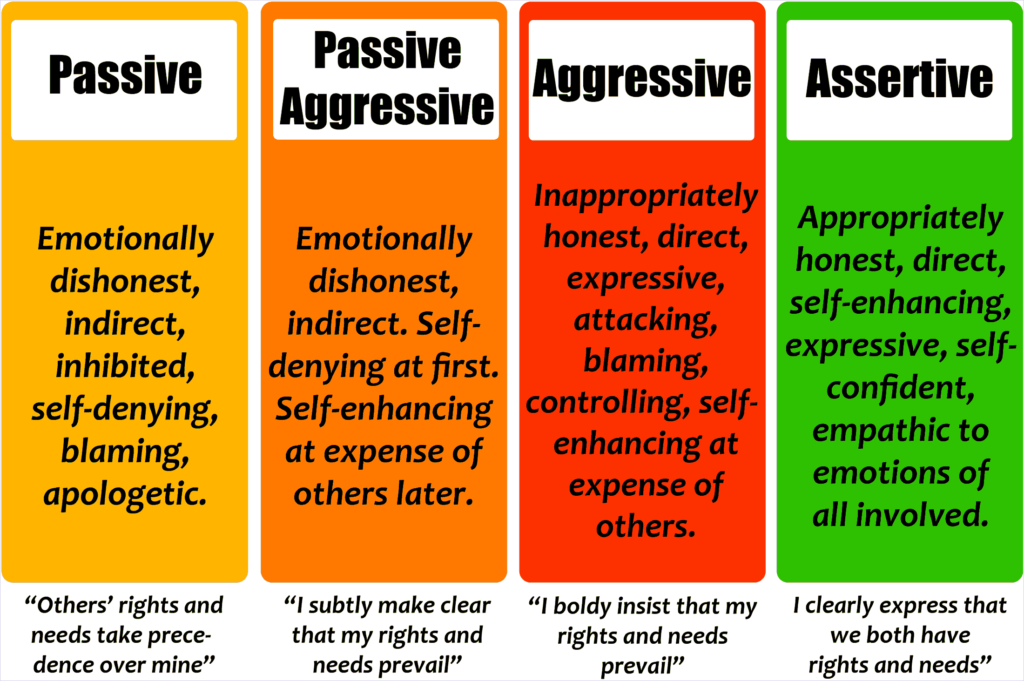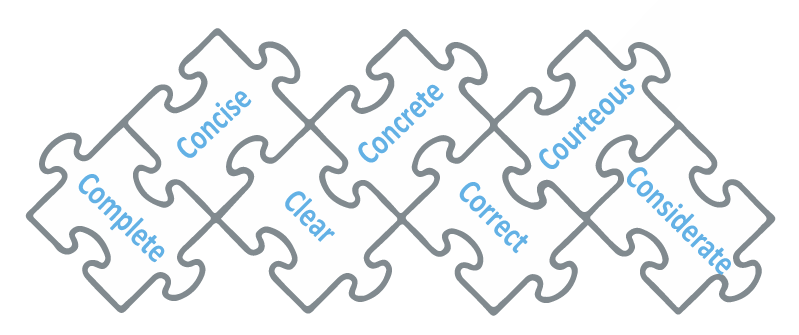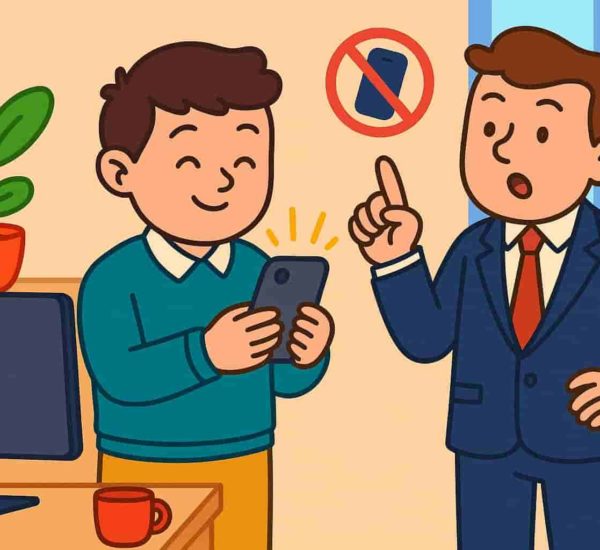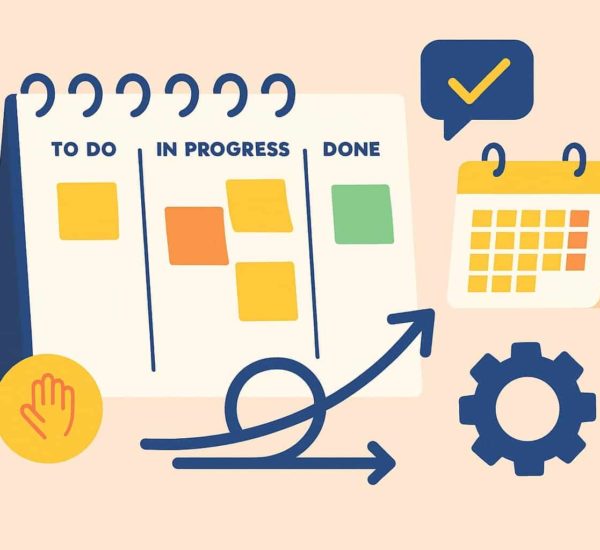Communication is crucial to making the workplace exciting and engaging for employees. It is one of the easy ways of creating a culture of high performance.
When effective communication in the workplace occurs, it means that there is an open dialog between all employees, and there are no communication barriers in the workplace. In this article, we’ll take you through the meaning of communication, the 7Cs of communication, and tips to facilitate communication in the workplace.
Communication Styles in the Workplace
There are mainly four basic communication styles in the workplace:
- Assertive
- Aggressive
- Passive
- Passive-Aggressive
To make communication effective at the workplace, it is important to understand when and where to use which style.

The 7 Cs of Communication
After understanding the styles, it is a must to know about the 7Cs of communication as it will help in choosing the right style of communicating
Good communication in the workplace is only possible when you know and understand the seven Cs of workplace communication. They are fundamental to understanding the importance of communication in the workplace.
Concrete
The message should be concrete so that the receiver gets an accurate picture of the same. Poor communication in the workplace leads to the audience re-imagining things and distorting the message. Always ensure that the communication you are making supports suitable data.
Coherent
It means following a sequence when you communicate with employees. The message decoder should clearly understand what to decode and from where the message originated.
Clarity
A message decoder should be clear about the format used for decoding the message. Make sure that the receiver of the message is not scratching their head to understand the message and making false assumptions about it. Try to keep your sentences crisp and speak in an active voice.
Commitment
It plays a key role in avoiding all communication problems in the workplace. Commitment to delivering a clear message will make a stronger impact on the employees and also boost their morale.
Consistency
Diction and word choice matter in workplace communication. Use the least possible words to communicate in the workplace. Maintain consistency in content, tone, and voice in the whole message. Do not repeat your words and sentences.
Completeness
Avoid leaving sentences incomplete as it may be interpreted as a lack of communication in the workplace. Complete communication in the workplace effectively, ensuring to cover both the purpose to inform and the action required. Following this strategy answers the question, “how to communicate better at work?”
Courteous
For good communication in the workplace, try to be respectful, honest, polite, and open. Avoid using offensive words, especially when you are communicating office policies.

Why is Communication Important in the Workplace?
For meeting the business intent, improving communication remains a top priority. When there is effective communication in the workplace, it makes it easier to identify good leaders from great ones. It makes it easier to define the company’s goals because it is a fundamental work practice for making the workplace more productive. Interpersonal communication does the following:
- Helps in avoiding confusion
- Creates a positive environment in the workplace
- Makes each of the employees accountable for their job responsibilities
- Make employees clear about achieving their goals and objectives
Different Tools in Communication
- Listening
- Oral communication
- Adaptability
- Written communication
- Public speaking
Tips for Effective Communication in the Workplace
Quality Content
Content plays a key role when you want to communicate. So, it is necessary to ensure that your communication is clear and information is correct. It is only possible when you are using the right platform. If communication is meant for the masses, prefer to use emails. Secondly, if a topic is highly serious, try to communicate personally or through Google Meet.
When you are making informal communication in the workplace, try to avoid discussing controversial topics or any emotion-evoking discussions. It sometimes becomes the reason for the loss of professional credibility.
Appropriate Styles in Communication
Apart from focusing on the content, it is also necessary to focus on how to improve communication in the workplace. Sometimes a communicator is required to reflect on the methods of interaction, such as how to use the appropriate tone and body language. The other thing to focus on is the manner of responding to coworkers’ communication.
Nonverbal Communication in the Workplace
Nonverbal workplace communication could be done in many ways, such as through body language or the tone you are using. Some effective communication in the workplace examples includes maintaining eye contact, maintaining good posture, dressing up nicely, keeping the tone moderate, and ensuring the listener remains engaged and does not get bored.
These are the best ways of guaranteeing effective communication in the workplace.
App for Team Communication
Using an app makes it easier to manage interpersonal communication in the workplace. It is a time-saving process that helps avoid long email threads. These apps are known as team collaboration apps where all the employees can communicate in groups while working on the same project. It is one of the simplest ways of dealing with all communication problems in the workplace.
Apps like Slack and MS Teams are the best choice. If you’re on either one of them, you could look at the 8 best apps for MS Teams and the 8 best HR apps on Slack for outsourcing.
Incorporating Inspiration and Information in Communication
Do not communicate just for the sake of passing information to the employees. To improve communication, plan the message you want your employees to retain. If you are expecting any action or response from the employees, let them know.
Practicing Active Communication
All employees who have good listening skills always perform better at work. Listening is as important as speaking, and it should not be taken for granted. The more one listens, the more clarity one has about that information.
Important Elements of Listening
Ensure to incorporate the following elements of listening, as it is one of the most important facets of all communication styles in the workplace:
- Make eye contact with the communicator
- Respond appropriately
- Avoid interrupting the speaker
- Check and examine the body language of the speaker
Open-Door Policy for Workplace Communication
The most challenging thing in the workplace is having an honest dialogue with team members and higher management. If you are an employee and are feeling uncomfortable sharing your thoughts with your supervisors, it is probably due to a lack of communication in the workplace.
To avoid such a situation, a company must create an “open-door policy” where employees feel encouraged to meaningfully interact. It helps in creating a positive work environment.
Follow-ups for Effective Communication in the Workplace
It is one of the most popular facets of communication. Whenever many meetings happen in the office, keep following up on them, whether in person or writing. It is one of the best ways of refreshing the information in the employee’s mind, resulting in improved workplace efficiency.
Improved Accessibility to Minutes of the Meeting
Minutes of the meeting may get distorted if not conveyed properly. So, frequently sharing documents and knowledge is one of the best strategies to improve communication in the workplace. Make a section on your company website for the employees to easily access knowledge about current events.
You can even use certain software as robust internal communication platforms for employees and employers. It makes it easier for employees to speak, and share their thoughts and beliefs. It is one of the best ways to create a judgment-free environment.
The demand for installing intranet software is growing faster and acts as one of the best ways to run a business smoothly.
If you use desktops in your office, it is easy to engage employees by sending notifications of upcoming news and events in the organization, awards for employees of the month, or other announcements.
Try this to make it a part of your communication strategy; it will help in getting more traction from the employees.
Refraining from Assumptions About Employees’ Performance
Another way of making workplace communication effective is to avoid forming a quick judgment. If, as a manager, you feel that your employee is lacking in any area, never make assumptions about their performance without appropriate communication. It is necessary to understand things from the employee’s point of view before naming someone a slacker. A manager is in charge of keeping an open line of communication for employees to generate better productivity at the workplace.
Focusing on Reward Mechanisms
Have expectations from employees if you want them to deliver. On meeting the expectations, never forget to recognize their achievements. As human beings, we love being recognized for good work and achievements. For employers too, it works in encouraging other employees to work better. By communicating the expectations through actions, one can easily make communication in the workplace effective.
The most common reward mechanisms include gamification tools or providing badges to employees.
Making Employees’ Profiles Accessible and Open
You cannot make communication effective if you are not aware of the employees’ profiles in the organization. So, one of the best ways of doing so is encouraging each employee to build interesting profiles in your communication platform. Filling out an employee profile is not limited to basic information. Ask the employees to provide photographs and write about their likes, dislikes, and interests.
Whether your business is large or small, having a complete employee profile builds connections and starts conversations.
AttendanceBot provides a great solution for this where we have an Employee Self Service portal where employees can create their profiles in this way.
Trusted Human Resource Department
If you are looking for ways to improve communication at the workplace, remember the HR department is responsible for handling the concerns and policies. Ensure that HR personnel in the workplace are easily accessible and approachable.
Attending Conferences as a Team
Many companies organize conventions and conferences annually. To kickstart effective communication in the workplace, invite the team to attend those events. Organizing and attending these events helps open up a great communication channel and team building.
Strong Customer Relationship Management (CRM)
Communication should be effective in the workplace, not only among the employees but also with customers. So, provide your employees with the most effective and reliable communication tools, such as the CRM platform. Using this software, the employee can easily track customer queries and concerns. It is of great help in accelerating the turnaround time while offering customer support services. It is one of the best ways of improving customer loyalty and value. For teams or individuals looking to streamline their interactions and follow-ups, adopting the best personal CRM can be a game-changer in building meaningful client relationships.
Removing Communication Barriers in the Workplace
To make communication effective in the workplace, frequently check on internal networking platforms, such as Microsoft Teams, regarding the ongoing tasks and the upcoming projects in your account. Hosting daily, weekly, or monthly meetings keeps everyone on the same page. It also eliminates pettiness in the workplace.
Due to the pandemic situation, we are mostly working from home, so Microsoft Teams and Google Meet are the best places to connect online. They help in maintaining the same communication level as working from the office.
Effective Communication is a Work in Progress
Effective communication in the workplace is a constant work in progress. Communication works mutually, and to make it effective, one needs to have good listening power, care, and patience. If you cannot effectively communicate at the workplace, it may lead to the loss of work opportunities, including outstanding business deals and promotions. So, having employees with strong communication skills is an asset and the backbone of the company.





